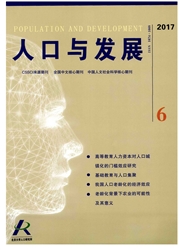

 中文摘要:
中文摘要:
基于Andersen医疗服务利用行为模型并进行改造,将原模型中影响医疗服务利用的三大类因素(预置因素、能力因素、需要因素)简化为两大类(预置因素和能力因素),并重点分析能力因素对农村老年人就医行为的影响。实证结果表明:预置因素(社会结构、健康信念)对农村老年人就医行为影响不显著,能力因素(经济状况、医保、医疗可及性)对农村老年人就医行为有显著影响。区分了广义的医疗费用和狭义的医疗费用,交通成本是医疗总成本的重要部分,在医疗保险制度已经建立并逐步完善的情况下,通过提高“医疗可及性”降低交通成本,优化医疗资源配置,是提高农村老年人“医疗可负担性”的有效途径。建议在市场有效的医疗领域,发挥市场机制在医疗资源配置中的决定性作用,引导优质医疗资源下沉,允许医生自由执业,通过提高医疗可及性来降低农村老年人的医疗总成本;在老少边穷地区等市场失灵地区举办公立医院,发挥医疗救助对农村特困老人的“兜底”功能。
 英文摘要:
英文摘要:
In this paper, we simplified the Andersen Medical Service Using Behavior Model into two categories, and focuses on analyzing the influence of "ability factor" to the medical behavior of the rural aged. The results show that: the "preset factor" has no significant influence, and the "ability factor" has a significant influence. The paper distinguishes between the general medical costs and the narrow medical costs, the transportation costs is an important part of total medical costs. We can improve the"medical accessibility"to reduce transportation costs ,and optimizethe distribution of medical resources, which is the way to improve the rural elderly' s affordabili- ty. Suggestions are as follows:First, the market mechanism should play the decisive role in med- ical resource allocation, guide the high quality medical resources sinking, allow doctors to free practice, reduce total costs by improving the medical accessibility;Second, public hospitals should be built in remote areas and bear the responsibility of the last out.
 同期刊论文项目
同期刊论文项目
 同项目期刊论文
同项目期刊论文
 期刊信息
期刊信息
